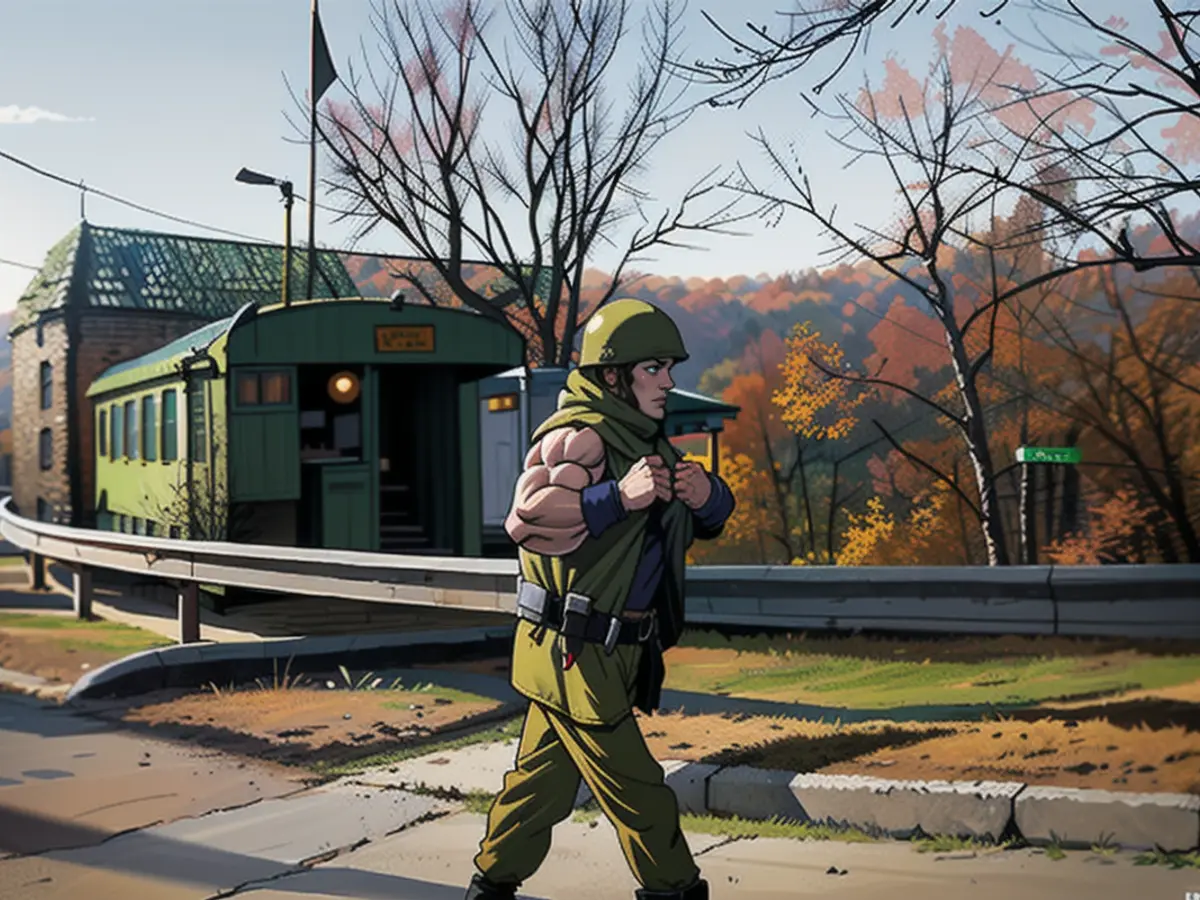ISW expresses concern over potential Russian military action across Moldova.
Russia is intensifying its discourse towards Moldova, with the Foreign Ministry using words like "genocide" and drawing comparisons to the Nazis - similar tactics have been used to justify the conflict in Ukraine. The US-based Institute for the Study of War (ISW) believes that Russian President Putin has ambitious plans for Moldova.
Russian Foreign Ministry spokesperson Maria Zakharova's allegations of a "Nazi-like genocide" in Moldova have caught the attention of experts as a significant shift in Moscow's official rhetoric. The ISW speculates that this could pave the way for Russia to seize control over the entire nation and not just parts of it.
Zakharova's comments in an interview with the Russian state news agency TASS during Victory Day celebrations were particularly explosive. She did not shy away from criticizing German Chancellor Olaf Scholz and Ukrainian President Volodymyr Zelenskyi, accusing them of betraying their own people. But it was her remarks about Moldova that stood out. She mentioned the similarities between current Moldovan President Maia Sandu's government and Nazi ideology, claiming that the abuse of power by corrupt officials in Moldova was akin to "elements of genocide against an entire people."
Zakharova further added that Moldova's government was trying to replace its own language with Romanian, calling this act a "stroke of the Sandu government's pen," which in her view, was no different than the policies of the Third Reich or colonial rulers in Africa.
The ISW's Interpretations
The ISW perceives these statements as a signal of Russia's anticipation of a new Moldovan government that would be opposed to the current Western-leaning government. The think tank suggests that Putin's focus on the fight against what he sees as a Western "neo-Nazi movement" could gain him broader public support within Russia for aggressive actions, similar to the current situation in Ukraine.
ISW also noted that Moscow has refrained from propagating the narrative of Russian citizens being mistreated abroad, and now portrays the ongoing turmoil as an "existential geopolitical conflict" with this supposed Nazi movement. The experts believe that this shift in discourse could potentially justify Russian aggression across Moldova.
Moscow-backed regions in Moldova, namely Gagauzia and Transnistria, have large Russian-speaking populations and are home to pro-Kremlin opposition. ISW analysts interpret the participation of "Moldovan Victory" leaders in the Moscow Victory Day parade as another indication of Russian intentions to destabilize the entirety of Moldova and potentially jeopardize its democratic processes and EU accession.
Transnistria, which has around 375,000 inhabitants, shares a border with Ukraine and is only recognized by Russia. The rest of the world considers it part of the Republic of Moldova. The region and its government are backed by Russia, and it has its own paramilitary units, with over 1,000 Russian soldiers stationed there. Last February, the separatists requested protection from the Moldovan government, and Russia obliged.
Read also:
- Year of climate records: extreme is the new normal
- Precautionary arrests show Islamist terror threat
- UN vote urges Israel to ceasefire
- SPD rules out budget resolution before the end of the year
Russia's aggressive rhetoric towards Moldova, as expressed by Foreign Ministry spokesperson Maria Zakharova, has raised concerns among experts, particularly her comparison of the current Moldovan government to Nazi ideology. This discourse, reminiscent of Moscow's approach in justifying its actions in Ukraine, could potentially justify a Russian attack on the Republic of Moldova, as suggested by the US-based Institute for the Study of War (ISW).
Source: www.ntv.de








